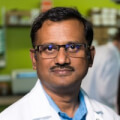Jun
21
2017
On demand
Addressing the critical bottlenecks in the cell & gene therapy manufacturing pathway
Wednesday 08:15 PDT / 11:15 EDT / 16:15 BST / 17:15 CEST

Watch this exciting On Demand Webinar with a panel of leading experts from the cell and gene therapy sector as we discuss the key bottlenecks in the manufacturing pathway and the latest advances in addressing them.
This interactive Q&A session features a panel of specialists from industry and academia with questions posed by key opinion leader Dr Peter Zandstra, University of Toronto.
In this webinar they discuss:
- Challenges in managing and scaling a complex supply chain that relies on human starting material and ends with a living product.
- The critical factors to consider when deciding when and what to automate in your manufacturing pathway.
- Whether there is a need for more genuine innovation in the sector versus customizing tools and technologies from other industries.
- How to approach process changes as your product moves towards commercial-scale manufacture.
By registering to view this On Demand Webinar you are also signing up as a member of Cell & Gene Therapy Insights and agree to be contacted by Cell & Gene Therapy Insights’ sponsors. We will email you a username and password so you can read all our open access content.
You have registered for this webinar
You might also like

From concept to clinic: overcoming the challenges of potency assays in cell and gene therapy development
Audrey Chang, Joe Newcome
10 December 2024
Watch

Manufacturing Quality Control for Plasmid DNA Critical Starting Materials
A Frazer, L R. Salvitti, S Lovatt et al.
29 April
Watch

Optimizing iPSC-derived cell therapy development
O Farah, M Kennedy, A Becker et al.
9 July
Watch

Application of CGE in cell and gene therapy
Ryan Hylands, Luiza Chrojan
22 October 2024
Watch

From development to manufacturing: ensuring quality and functionality in gene therapy
Chris Heger
23 October 2024
Watch




